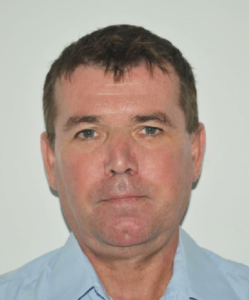
Gabather – focus on CNS diseases
Diseases of the central nervous system (CNS) and mental health issues represent a major burden on society, and there is considerable room for improvements of the current therapeutic alternatives. Swedish pharma company Gabather is working to alleviate this burden by developing therapies targeting the GABAA receptor, which is involved in a wide range of CNS illnesses, in particular psychiatric disorders like schizophrenia, depression and anxiety. BioStock got in touch with CEO Dr Michael-Robin Witt to learn more about the company and its strategy for bringing new treatments to CNS disease patients.
The body’s CNS includes the brain and the spinal cord. In simple terms, the brain acts as the body’s main computer, generating electrical signals that tell the rest of the body how to behave and what functions to perform. Those signals are first generated among the different regions of the brain and then sent down the spinal cord to the peripheral nervous system (PNS), which extends the signals to the body’s other tissues.
Chemicals called neurotransmitters play a key role in making sure the electrical signals fire correctly. Any unbalance in these chemicals can lead to serious deficits in bodily functions and/or behaviour, which is what happens during a disease of the CNS like Alzheimer’s disease, schizophrenia, depression or Parkinson’s disease, just to name a few of the most common. Such disorders represent a major burden for society, being the third leading cause of premature death and disability in Europe, according to a Lancet publication from last year. Unfortunately, as the population ages, the numbers are expected to progressively increase, thus generating a high demand for novel treatments.
Gabather zeros in on psychiatric disorders
![]() In the Nordic region, one of the pharma companies developing new CNS disease treatments is Gabather. The company, listed on the First North Growth Market, is located in Södertälje, near Stockholm, Sweden, and was founded in 2014 based on 10 years of research at Lund University and University of Copenhagen.
In the Nordic region, one of the pharma companies developing new CNS disease treatments is Gabather. The company, listed on the First North Growth Market, is located in Södertälje, near Stockholm, Sweden, and was founded in 2014 based on 10 years of research at Lund University and University of Copenhagen.
The company’s main focus is on the development of highly potent and selective small molecules that target the GABAA receptor – a protein complex in the CNS that interacts with the principal inhibitory neurotransmitter in the mammalian brain, gamma aminobutyric acid (GABA). This is where the name of the company originates – an abbreviated form of GABA Therapeutics.
Therapeutics for mood disorders represent a huge market
GABA is one of the main neurotransmitters, and its imbalance is known for playing a key role in several neurological diseases, including psychiatric or mood disorders like depression, anxiety, and schizophrenia. More than 300 million people worldwide live with one of the major psychiatric illnesses, and, according to Gabather, these therapeutic areas represent a total addressable market of about 58 BUSD.
However, the neurotransmitter also plays a key role in neurodegenerative diseases like Alzheimer’s disease. All of these illnesses still lack effective treatments that do not cause heavy side effects, and the GABAA receptor is a promising target shown to potentially help reverse the neurochemical imbalance. Gabather has strong IP protection for two compound groups as well as very broad protection of all aspects of the clinical candidate GT-002.
We develop next generation therapeutics to treat mental illnesses. Our selective GABAA modulators may improve the treatment of psychiatric and neurological diseases – ultimately, for the benefit of the patient. Our vision is to make a major contribution to ease this growing health problem« — Dr Robin-Michael Witt, CEO at Gabather
Positive clinical results for GT-002
GT-002 has been through extensive testing in preclinical trials and has shown promising results demonstrating strong anti-psychotic properties, as well as the ability to improve memory and cognition.
The candidate has been tested in a clinical phase Ia study with 32 healthy volunteers, where single and increasing doses of GT-002 were evaluated for safety, tolerability and pharmacokinetic properties.
In autumn of 2020, the candidate successfully completed a phase Ib study with repeated and increasing doses in healthy subjects. The analysis of the results shows that GT-002 has very good pharmacokinetic properties and a favorable safety and tolerability profile in healthy individuals.
CEO introduces Gabather’s vision
BioStock reached out to Gabather’s CEO Dr Michael-Robin Witt to learn more about the company and its plans moving forward.
Dr Witt, could you tell us a little bit more about Gabather and the company’s overall vision?
– We develop next generation therapeutics to treat mental illnesses. Our selective GABAA modulators may improve the treatment of psychiatric and neurological diseases – ultimately, for the benefit of the patient. Our vision is to make a major contribution to ease this growing health problem.
In general, why are psychiatric disorders so difficult to treat?
– There are a number of reasons, the most prominent being that the root cause of the disease is unknown, many times it is a multifactorial process and that many disorders are neurodevelopmental: they develop over time. An example would be Alzheimer’s disease, where the pathology starts years before the manifestation of the symptoms – the damage is already done.

How is Gabather’s therapeutic strategy different from current solutions, considering that the GABAA receptor is already known as a therapeutic target?
– Indeed, the GABAA receptor is a well-established drug target for a large number of anxiolytics and sedative muscle relaxant drugs! However, it is too simplified to speak of “the” GABAA receptor; there are a large number of subtypes and combinations thereof, so it would be perhaps clearer to think about a family or group of receptors, which are also distributed selectively in different brain regions leading to selective pharmacology. It is in this variety that there is an opportunity for a novel therapeutic approach. Our working hypothesis is that GT-002 targets a selected group of subtypes making it pharmacological profile unique.
Regarding the clinical trial with GT-002, for now the candidate has been evaluated in healthy volunteers. What specific indication(s) will come under the spotlight as the clinical trial goes on the next stage of development?
– We have strong preclinical data on antipsychotic and pro-cognitive effects, that is, enhancement of learning and memory. We are currently planning clinical trials in depression and schizophrenia to be performed during 2021/22.
What is the next step for the clinical trial with GT-002?
– The next step will be a “target engagement” study in healthy volunteers where we will study the effects of GT-002 on the electrical activity of the brain via Electroencephalography (EEG), as well as functional activation of the brain Magnetic Resonance Imaging (MRI). This will show us how GT-002 modulates brain activity and where in the brain it does so.
What is Gabather’s business strategy as the company goes deeper into the clinical stages of development?
– Our business strategy is very straightforward: to partner GT-002 and reinvest the resources into our drug development pipeline bringing forward novel compounds. There have been a number of examples in the last years regarding very successful licensing agreements with GABAA receptor modulators from smaller biotech companies. For example, there has been a recent transaction where Biogen acquired the rights for a GABAA modulator following a clinical phase III trial from Sage Therapeutics – a deal worth 1.6 billion USD!
What are some other major milestones to look forward to for Gabather this year?
– The key milestones will be a successful Target engagement study and the start of the trials in patients.
Finally, where do you see Gabather 5 years from now?
– I would like to see Gabather as a major player with strong therapeutic alternatives within the field of mental health, psychiatry and neurology – a drug development engine, if you will. Due to the ongoing pandemic, mental health issues will become more prominent and acute in the future years and is has been shown that Covid-19 – particularly “long Covid”- also penetrates the CNS and leads to pathology.
The content of BioStock’s news and analyses is independent but the work of BioStock is to a certain degree financed by life science companies. The above article concerns a company from which BioStock has received financing.



